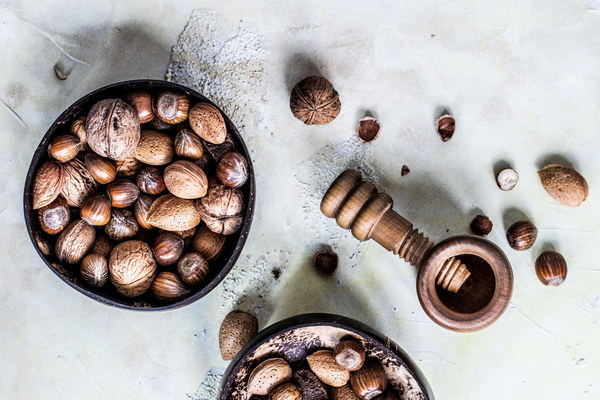Does Drinking Herbs for Dampness Relief Make Your Stool Smell Bad
Introduction:
Traditional Chinese medicine (TCM) has been used for centuries to treat a wide range of ailments, including dampness. One common question that arises among individuals seeking TCM remedies is whether consuming herbs for dampness relief can lead to bad-smelling stool. In this article, we will explore this topic, discussing the possible reasons behind the smell and offering some insights into managing it.
What is Dampness in TCM?
Dampness is one of the key concepts in TCM, referring to a pathological condition that affects the body's ability to process and eliminate moisture. It can manifest in various ways, such as fatigue, weight gain, bloating, and poor digestion. To alleviate dampness, TCM practitioners often prescribe herbs that help to expel dampness from the body.
Herbs for Dampness Relief:
Several herbs are commonly used in TCM to treat dampness. Some of the most popular ones include:

1. Astragalus (Huang Qi)
2. Atractylodes (Cang Zhu)
3. Poria (Fu Ling)
4. Cinnamon (Rou Gui)
5. Alisma (Zexie)
These herbs work by promoting the flow of Qi (vital energy), enhancing the body's ability to metabolize moisture, and eliminating dampness through urine and stool.
Does Drinking These Herbs Make Your Stool Smell Bad?
The question of whether consuming herbs for dampness relief leads to bad-smelling stool is a valid concern. Here are some reasons why this might happen:
1. Metabolic Byproducts: As the body processes the herbs, it may produce certain byproducts that can contribute to an unpleasant odor in the stool.
2. Increased Fiber Intake: Many dampness-relieving herbs are rich in fiber, which can lead to a more substantial and possibly smelly stool.
3. Improved Digestion: While it's a positive outcome, improved digestion can result in more frequent bowel movements and potentially stronger stool odors.
4. Detoxification: Some dampness-relieving herbs have detoxifying properties, which may cause the stool to smell bad as toxins are eliminated from the body.
Managing Bad-Smelling Stool:
If you experience bad-smelling stool while taking dampness-relieving herbs, here are some tips to help manage the situation:
1. Adjust the Dosage: Consult with your TCM practitioner to see if you can adjust the dosage of the herbs to minimize the impact on your stool.
2. Stay Hydrated: Drinking plenty of water can help dilute the stool and reduce its odor.
3. Maintain a Balanced Diet: A diet rich in fiber, probiotics, and prebiotics can help regulate your digestion and minimize stool odor.
4. Consider Other Herbs: Some individuals may benefit from alternative herbs that have a milder effect on the body and may not cause as strong an odor.
Conclusion:
While consuming herbs for dampness relief may occasionally lead to bad-smelling stool, this is usually a temporary side effect. It is essential to consult with a qualified TCM practitioner to determine the best treatment plan for your specific condition. By following the tips mentioned above, you can help manage any unwanted side effects and improve your overall well-being.









